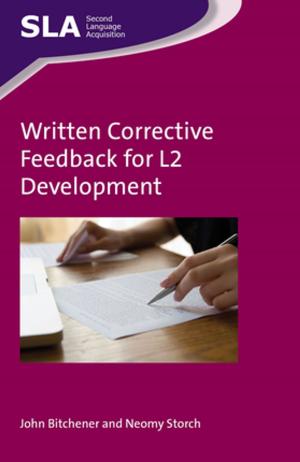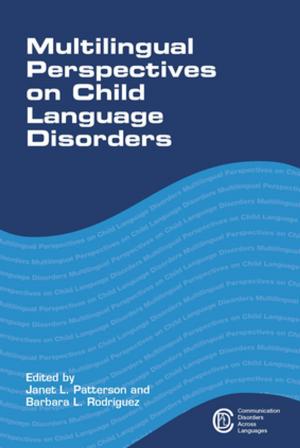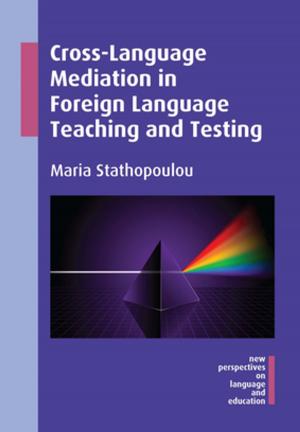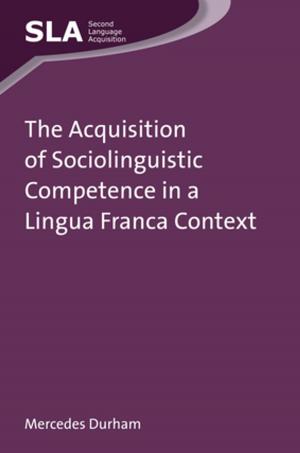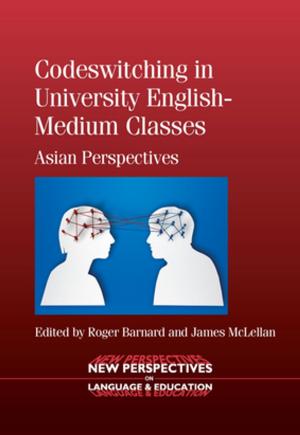Being and Becoming a Speaker of Japanese
An Autoethnographic Account
Nonfiction, Reference & Language, Language Arts, Linguistics| Author: | Andrea Simon-Maeda | ISBN: | 9781847694973 |
| Publisher: | Channel View Publications | Publication: | March 15, 2011 |
| Imprint: | Multilingual Matters | Language: | English |
| Author: | Andrea Simon-Maeda |
| ISBN: | 9781847694973 |
| Publisher: | Channel View Publications |
| Publication: | March 15, 2011 |
| Imprint: | Multilingual Matters |
| Language: | English |
This autoethnographic account of the author’s Japanese as a second language learning trajectory is an important and unique addition to diary studies in SLA and applied linguistics qualitative research circles. In-depth ethnographic details and introspective commentary are skilfully interwoven throughout Simon-Maeda’s narrative of her experiences as an American expatriate who arrived in Japan in 1975 – the starting point of her being and becoming a speaker of Japanese. The book joins the recent surge in postmodernist, interdisciplinary approaches to examining language acquisition, and readers are presented with a highly convincing case for using autoethnography to better understand sociolinguistic complexities that are unamenable to quantification of isolated variables. The comprehensive literature review and wide ranging references provide a valuable source of information for researchers, educators, and graduate students concerned with current issues in SLA/applied linguistics, bi/multilingualism, and Japanese as a second language.
This autoethnographic account of the author’s Japanese as a second language learning trajectory is an important and unique addition to diary studies in SLA and applied linguistics qualitative research circles. In-depth ethnographic details and introspective commentary are skilfully interwoven throughout Simon-Maeda’s narrative of her experiences as an American expatriate who arrived in Japan in 1975 – the starting point of her being and becoming a speaker of Japanese. The book joins the recent surge in postmodernist, interdisciplinary approaches to examining language acquisition, and readers are presented with a highly convincing case for using autoethnography to better understand sociolinguistic complexities that are unamenable to quantification of isolated variables. The comprehensive literature review and wide ranging references provide a valuable source of information for researchers, educators, and graduate students concerned with current issues in SLA/applied linguistics, bi/multilingualism, and Japanese as a second language.

